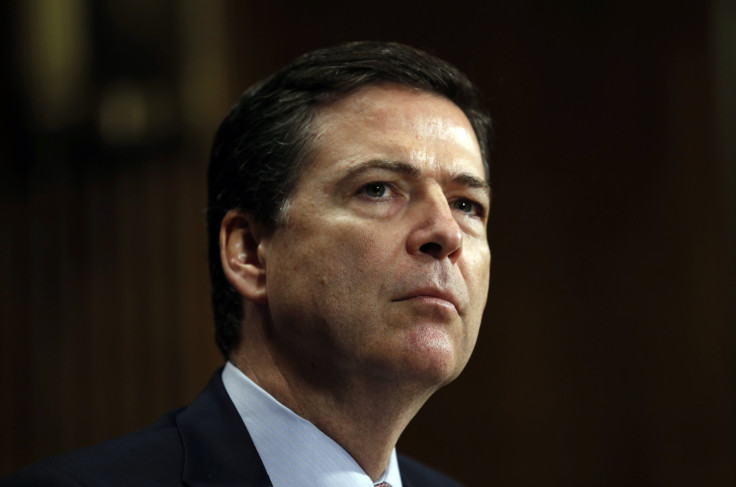FBI Director James Comey Delivers 'Hard Truths' About Police And Race

FBI Director James Comey delivered a speech on relations between police officers and communities of color in the United States at Georgetown University on Thursday, laying out what he called "hard truths." In the speech, he asserted that police bias does exist when dealing with black citizens, but also warned against scapegoating police as a way to avoid dealing with larger racial issues.
"We can turn up the music on the car radio and drive around these problems. Or we can choose to have an open and honest discussion about what our relationship is today — what it should be, what it could be, and what it needs to be — if we took more time to better understand one another," he said.
He began by discussing the country’s race history, and the role law enforcement officials played in it. “At many points in American history, law enforcement enforced the status quo, a status quo that was often brutally unfair to disfavored groups.”
Comey acknowledged that "unconscious racial biases" toward black Americans existed among the white majority. “Many people in our white-majority culture ... react differently to a white face than a black face.”
Those in law enforcement, he said, were susceptible to “lazy mental shortcuts” that lead officers to make cynical judgments about minorities.
At the same time, he stressed that law enforcement officers were not exclusively to blame. “So many boys and young men grow up in environments lacking role models, adequate education, and decent employment—they lack all sorts of opportunities that most of us take for granted.”
“A tragedy of American life—one that most citizens are able to drive around because it doesn’t touch them—is that young people in 'those neighborhoods' too often inherit a legacy of crime and prison,” Comey said.
He praised President Barack Obama’s “My Brother’s Keeper” initiative for addressing the systemic factors that contributed to the exclusion of young black men from society. “For instance, data shows that the percentage of young men not working or not enrolled in school is nearly twice as high for blacks as it is for whites,” he said, citing Bureau of Labor Statistics figures.
“This initiative, and others like it, is about doing the hard work to grow drug-resistant and violence-resistant kids, especially in communities of color, so they never become part of that officer’s life experience,” Comey said.
At the same time, he professed his “affection” for law enforcement, highlighting his own family history in the field and asserting that the vast majority of officers had good intentions: “I believe law enforcement overwhelmingly attracts people who want to do good for a living—people who risk their lives because they want to help other people.”
The speech comes after an especially fraught year in relations between police and the public, particularly minority citizens. The police slayings of Eric Garner and Michael Brown, and the decision to not charge officers in either case last year triggered widespread protests across many cities in the U.S.
Pew Research noted in a report that the reactions to those deaths skewed sharply along racial lines, with around 60 percent of blacks saying race played a major factor in both cases, whereas 50 to 60 percent of whites said race played no factor at all.
The frustration over the two cases was due to what activists said was a wider, unaddressed issue of police brutality. A ProPublica analysis found that blacks aged 15-19 were 21 times more likely than whites of the same age to be fatally shot by police officers.
Comey called upon both police and civilians to bridge the growing divide in American society. “We must work—in the words of New York City Police Commissioner Bill Bratton—to really see each other,” he said. “Perhaps the reason we struggle as a nation is because we’ve come to see only what we represent, at face value, instead of who we are.”
© Copyright IBTimes 2024. All rights reserved.





















